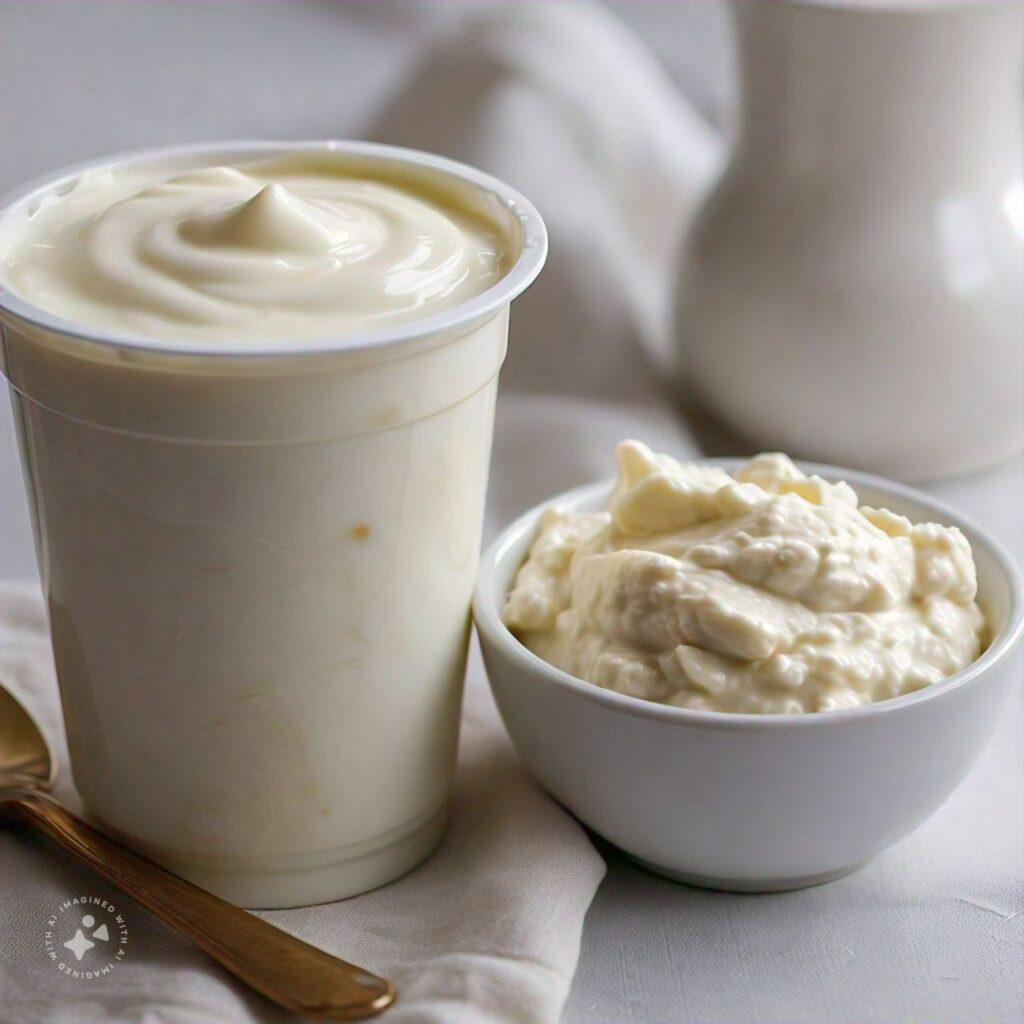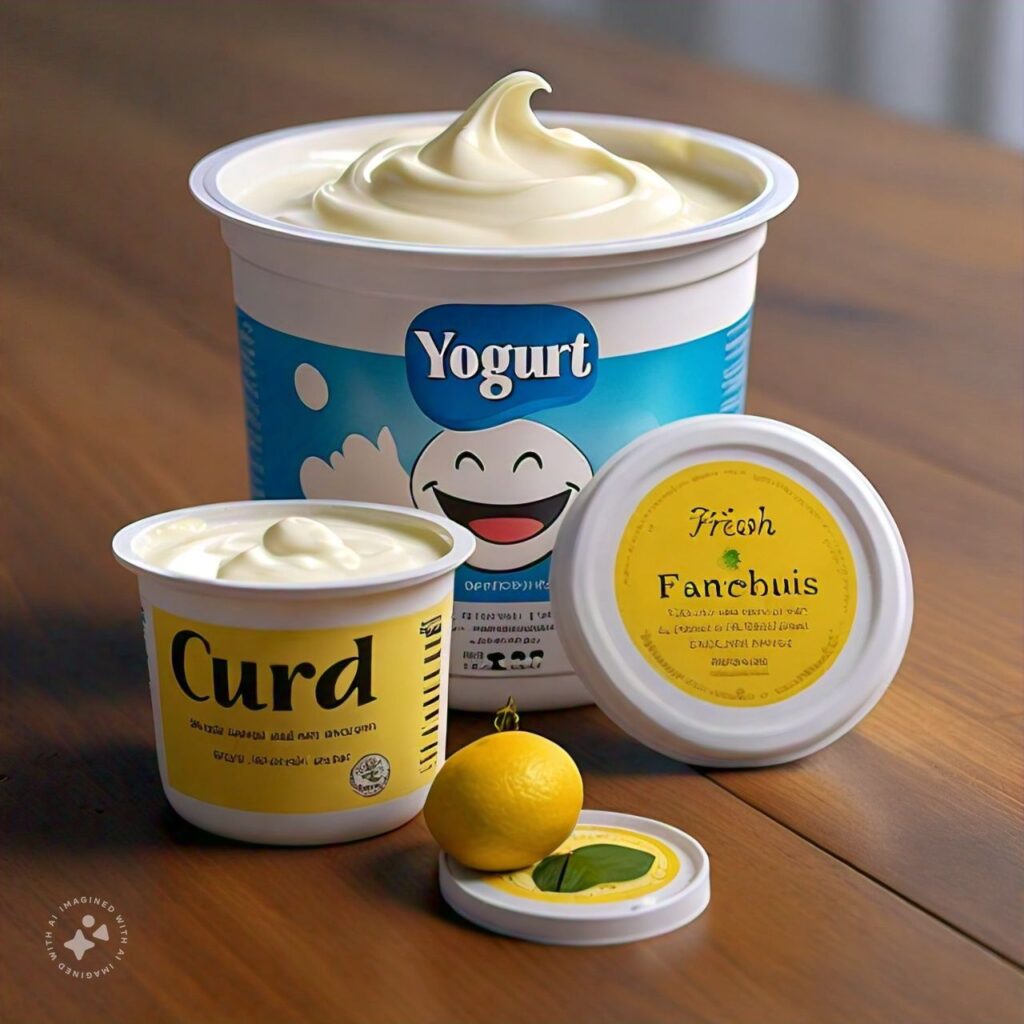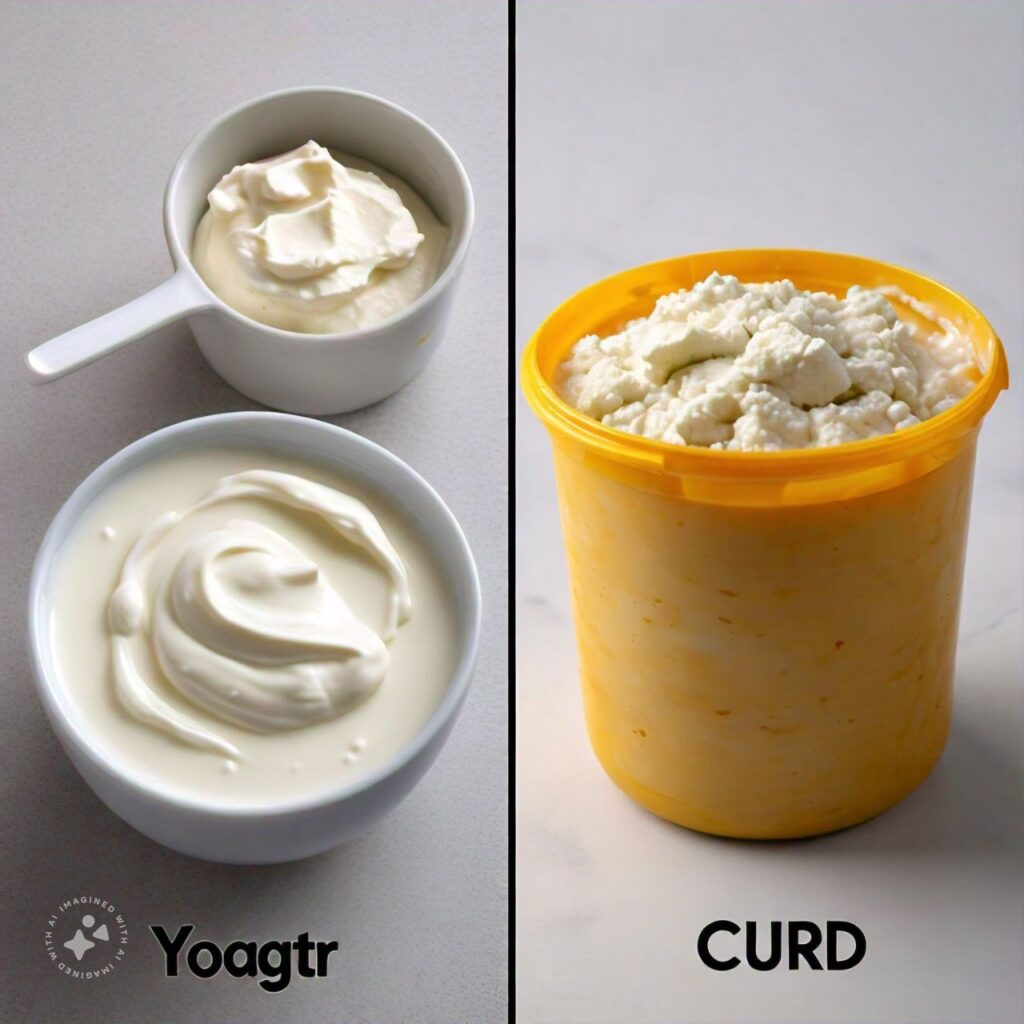Uncover the differences between yogurt and curd, two popular dairy products. Explore their nutritional profiles, health benefits, and culinary uses to make informed choices for your diet.
A common question I get, especially by individuals that have recently taken up yoga, is this; “what is the difference between yogurt and curd?” You are not alone in asking this question because there are ranges of people that get confused especially with the raise in yogurt’s fame as a healthy food. And there are grounds for their confusion ‘cause they are both fermented milk made from different preparation methods, bacterial tights and health benefits. In this article I’m going to detail my reasons as to why there are those that trust yogurt is a better food than curd.
So where do Yogurt and Curd separate exactly?

People are mostly ignorant that curds so widely spread into Indian pairs it’s not the same as yogurt that is widely available in the western pairs. Although there are some similarities, they primarily differ in relation to the fermentation process and bacterial bacteria that is associated with both products.
Milk that is warm and has been treated when lactic acid bacteria is incorporated into it is what set off the process of making curd, and the natural propagation of the bacteria over time leads to the fermentation process. Nevertheless, the bacterial bad strains that are found in curd are not fixed which explains the inconsistency that comes with every batch such as taste or texture.
On the flip side, yogurt contains certain strains of bacteria that include Lactobacillus bulgaricus and Streptococcus thermophilus, which are required to maintain standardization in them. These bacteria are also responsible for metabolic activities in yogurt especially the sour taste and the smooth mouth feel.
Among the factors that distinguish the two is the application of controlled bacterial cultures in the preparation of yogurt that brings about uniform taste and texture. Yogurt, on the other hand, is mostly thicker and creamier than curd which gets even thicker in varieties like Greek yogurt that has gained much attention in the recent past owing to the high protein it contains and its health benefits.
The Recent Rise in Popularity of Yogurt in the Modern Diet
In this contemporary world that is centered on healthy living, yogurt has become more of a staple beta, most especially for persons seeking to lose weight or improve their digestive system. It contains large quantities of probiotics that are helpful in digestion and boosting the immune system. In addition, yogurt is also referred to as a superfood because of its high protein content, especially varieties such as Greek yogurt which have twice the amount of protein found in normal curd. To illustrate, a regular serving of curd has 3-4 grams of protein however Greek yogurt provides 8-10 grams of protein, hence making it a better fit for individuals targeting muscle recovery after a strenuous workout.
Nutritionists and dieticians regard yogurt as a beneficial component of the diet due to its potential for improving muscle recovery and lowering the load on the muscles after performance. Dr Seema Singh, the Chief Clinical Nutritionist at Fortis Hospitals, states that ‘If a person is ready to work constantly with active T-cells which are protective cells within the body and consume yogurt on a daily basis, the cells will be active. For those who work out regularly, yogurt is great for muscle strain and stress post workout as well as improving how fast one’s body can recover from a workout.
Yogurt for Lactose Intolerance

Another noteworthy benefit of yogurt compared to curd is its possession of the ability to assist lactose intolerant individuals. In creamers, the fermentation process converts lactose into lactic acid and thus becomes easy for the lactose intolerant. Dr Mansi Chatrath, a prominent nutritionist, believes that yogurt can be an excellent substitute for those who are lactose intolerant making the dairy product more usable by a large number of the people who are not suited to the consumption of milk.
Can You Prepare Yogurt at Home?
Yogurt lovers have diverging opinions, with some being staunch proponents of crafting curd at home, while others categorically refute the possibility of broccoli stem carbonara’s preparation in a standard kitchen context, such as Dr. Ritika Samaddar, Chief Dietician at Max Healthcare. On the contrary, some experts claim that it is doable, and there is a method in the madness, such as the method suggested by Chef Cecil Raj from QBA.
With that in mind, if you want to prepare yogurt at home, this article is for you–all the necessary ingredients and instructions are provided below:
First, pour clean glass milk into a heated container until it’s almost boiling. After heating, the material should be allowed to cool down a bit.
Allow the milk to cool until it becomes warm, which is 100 to 105 degrees Fahrenheit, hot still skin will form, but don’t worry, it is a natural process.
In lukewarm milk, add two tablespoons of yogurt, whether finely crafted at home or bought, and mix it while delicately pushing it back to ensure the skin doesn’t rupture.
Place a lid on the container, and then store it somewhere warm or place it in a bowl of lukewarm water to assist with fermentation for the next 8-12 hours. Note that the longer it stays, the greater the acidity levels.
Once the yogurt is set, remove excess moisture (whey) and place it in the refrigerator for 4 hours.
Your homemade yogurt can be kept for 4-5 days within the fridge, and don’t forget to save some of the earlier yogurt as a starter for future batches that you would make!
The Health Value of Yogurt Is More Than Just How It Tastes
There are numerous health benefits of yogurt aside from it being a snack or an accompaniment to your meals. For instance, one such through Uzbekistan is just relying or engaging well in its eating habit can have a healthy digestion and lower chances in developing an excess weight. Moreover, the pro-biotics in yogurt also boost digestion through its support for a healthy bacteria in the gut lining. Moreover, it helps a lot for the development in the bones and the teeth as it is a good source of vitamin D and also of calcium.
Yogurt, especially Greek yogurt, is great for those who wish to up their protein consumption without over consuming calories as its thick texture means it does a great job at making one feel ‘full’. Another benefit that this type of yogurt contains is that it works great in smoothies, salads, and as sauces, which makes it suitable for different types of diets.
Conclusion
In the end, both curds and yoghurt can be viewed as one thing as they can regard one another, however they are two distinct items because of their method and bacterial culture. For persons who want to better their general health, the thickness, health advantages and the multiple uses of yoghurt make it a more useful product. Including yogurt in your diet, whether making it at home or purchasing it from the marketplace, can aid in better digestion, faster recovery of muscles and overall health. For the Lactose intolerant, eating yogurt is an amazing replacement for dairy because it does not upset the stomach as much as milk or curd does.
Therefore, in the future, if you are having trouble deciding between curds and yoghurt, just remember the aforementioned factors, and you will be able to pick the one that is best suited to your diet and taste.
Note: All Images are generated AI only for reference purpose


